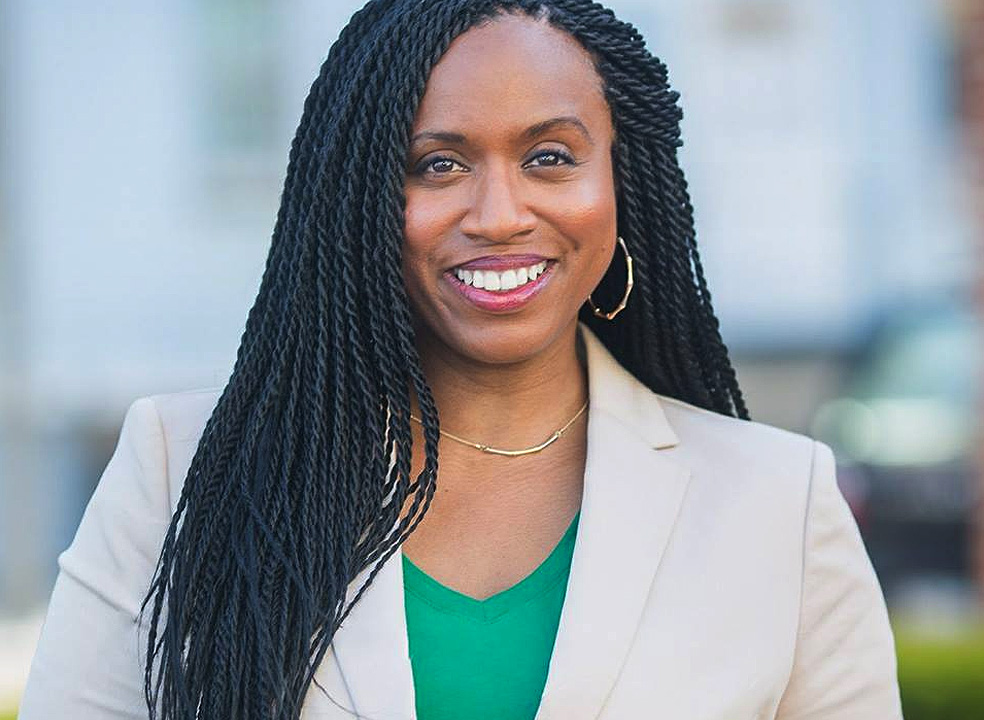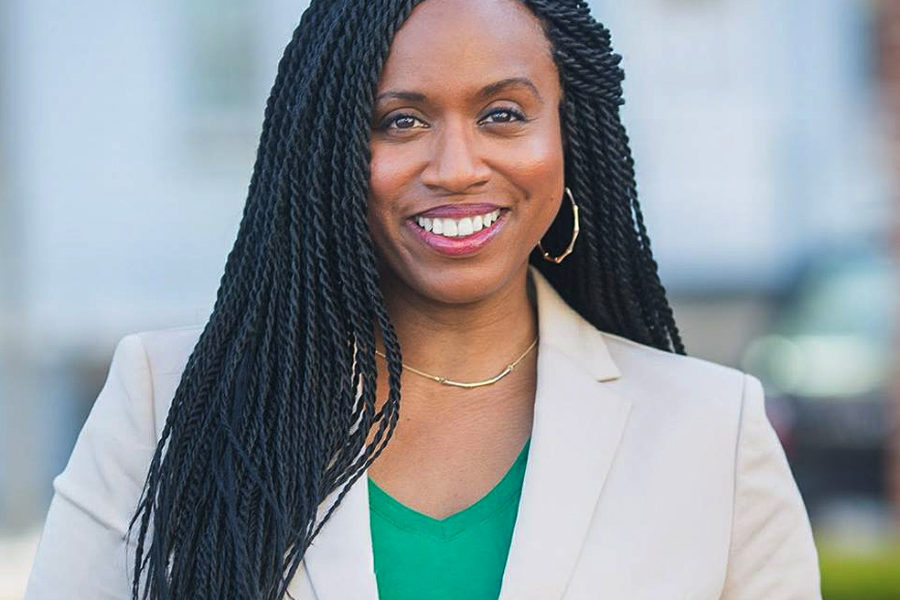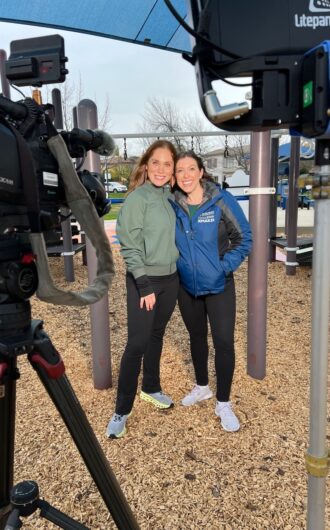
Photo courtesy of Ayanna Pressley for Congress campaign
Candidate Ayanna Pressley is hoping to make herstory once again in Massachusetts
Ayanna Pressley, the five-term and current Boston city councilor at large, is running against incumbent Rep. Michael Capuano, D-Mass., for the 7th Congressional District seat in the Sept. 4 primary election. As both candidates are progressive Democrats, they agree on many of the same issues. But Pressley emphasizes how her perspective as a woman of color allows her to address specific root causes of inequalities in her district, which includes parts of Middlesex, Suffolk, and Norfolk counties.
The historic upset victory of Bronx native Alexandria Ocasio-Cortez in New York’s 14th Congressional District Democratic primary has resulted in Pressley garnering similar national attention. Pressley was the first woman of color to be elected to Boston’s City Council in 2009.
Pressley’s campaign priorities include taking on the NRA by treating gun violence like a public health crisis, protecting women’s reproductive rights, ensuring access to high-quality and affordable health care, and standing up for civil rights, regardless of one’s immigration status.

Exhale: Challenging a longtime incumbent from the same party was seen as a bold move by political pundits. Why were you ready to take on this challenge?
Ayanna Pressley:I’m running for Congress because change can’t wait. Massachusetts’ 7th Congressional District is one of the most diverse districts in the country but also one of the most unequal. Families who live just miles apart experience vast inequities in health, income, and opportunity. Women, minorities, and immigrants, in particular, face significant barriers to opportunity. Leadership goes beyond just voting the right way—it’s about providing intentional advocacy on the issues important to our residents. I have called for ICE to be abolished and for children to be immediately reunited with their families. I refuse to accept corporate PAC money. I oppose the militarization of police in our schools. I have introduced an equity agenda that includes specific policy ideas to address the disparities that exist in the district. That is the kind of principled, intentional leadership I have brought to the Boston City Council and the kind of leadership we need in Congress

What has been at the core of your beliefs since the start of your political career?
I have always thought that those closest to the pain should be closest to the power, and I believe we need leaders at the federal level who will listen to and lift up the voices of those who are too often overlooked. I have spent much of my life in the rooms and spaces where politicians rarely go, and it has given me deep insight and empathy for the challenges faced by the people who call the 7th District home.
Many of those challenges result from man-made policies, and if those policies have been created by man, they can be undone by this woman. I am running for Congress because I want to be an advocate and partner for those in our communities and bring their voices with me to Washington in order to change the policies and conditions that have created the disparities we see today.

You talk about your mom a lot as your “shero.” How important is it for every girl to have a shero to look up to?
Without my mother’s guidance and inspiration, I would not be the person I am today. I believe every girl and young woman should have strong female role models who can provide the same kind of guidance and inspiration. That’s why I have dedicated so much of my life to promoting mentoring, through programs like Ayanna’s BIG Challenge, which partners with local Big Brothers Big Sisters associations in Boston. And it’s why I believe it’s so important that we elevate women to positions of leadership in politics, business, academia, and elsewhere. I’m running to be the first woman of color to represent Congress in the 230-year history of our commonwealth. I want every young girl to be inspired and never doubt what [she] can achieve.

What issues that directly impact women in your district deserve closer attention in Congress?
Women and girls in the 7th District, and across the country, continue to face significant challenges—from threats to reproductive health care ac-cess to persistent wage gaps to sexual and intimate partner violence—and disparities in educational opportunity. On the Boston City Council, I established the Committee on Healthy Women, Families, and Communities to take a comprehensive approach to supporting women and girls, because I know how important they are to the health of our communities. I believe in empowering women to succeed through policies that promise equal pay for equal work, ensure access to affordable childcare, help alleviate the burden of student loan debt, which falls disproportionately on women, address the impact of teen pregnancy, and other priorities.

A lot of people say 2018 is the new Year of the Woman. What do you think?
Like so many others, I attended the Women’s March the day after Donald Trump’s inauguration, and we said, “First we march, then we run!” They didn’t believe us. But here we are: record numbers of women running for office across the country. I am humbled to be a part of a movement that is clearly declaring that change can’t wait.



 4 min read
4 min read


